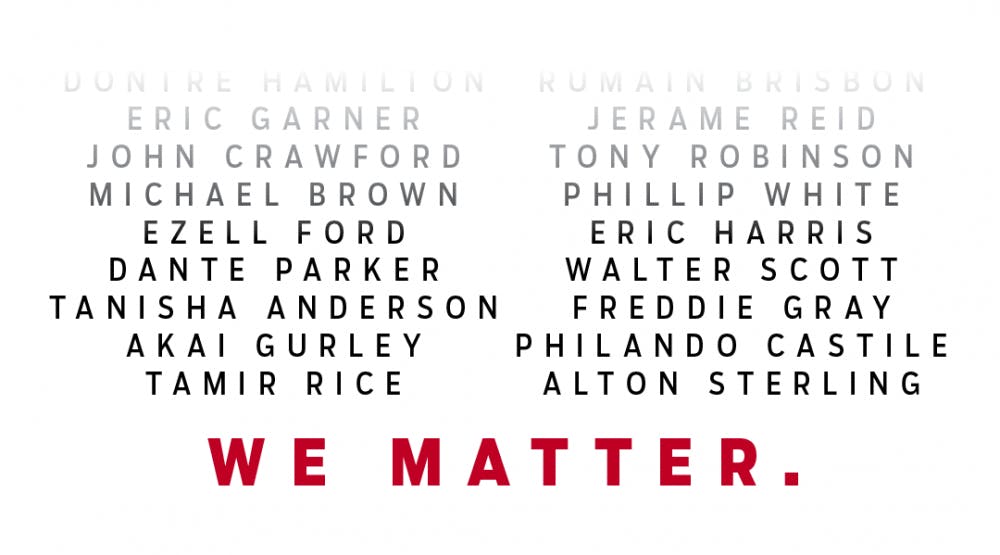When you’re black, you’re born eyeing the barrel of a gun.
Our society teaches us that whether or not the trigger is pulled is entirely up to us.
You shouldn’t have had your hood up. You shouldn’t have had your pants sagging so low. You shouldn’t have been standing in that spot. You shouldn’t have reached for your wallet.
We are the perpetrator of our own demise.
This lesson never seemed more clear to me than the day my sister mentioned how she would have “the talk” with her son.
Not the one with the birds and the bees – the one with the bullets and the blue lights.
“When you see a cop, stand up straight. Be polite. Don’t argue. Do whatever the officer says.”
I’m sure many parents, black or white, offer this advice to their children. The difference is while this is a lesson in manners to white children, to black people these are survival tips.
The fact is, we’ve been taught to be afraid of the police because we still bleed even when we’re innocent and there’s a long list of names to justify that fear.
That fear has altered the way we raise our children. It has morphed our love into heavy hands and angry voices because these lessons have to stick. You can’t forget them once you step out of your house because you’re on full display now. There is nothing blocking you from that gun you were born facing now and anyone you pass on the sidewalk could be a trigger-happy finger waiting for you to make the wrong move.
It’s the definition of tough love because no one else is going to take care of us. Because we don’t matter to anyone else.
That’s been the entire point of the Black Lives Matter movement. But rather than see our desperation for acknowledgment, we get voices saying, “Yes, but all lives matter.”
“Blue lives matter.”
Of course all lives matter. Every life has meaning and should never be lost to senseless violence, whether you’re a black boy in Missouri or a police officer in Dallas.
The purpose of Black Lives Matter has never been to devalue the existence of others. It is to prove and remind people, and even ourselves, that our lives carry just as much importance.
It is never “just” another black body on the street. It is never “just” another tragedy, another misunderstanding, another mystery. These are significant losses wrought by a corrupt system that’s very foundation was assembled to oppress us.
Our marches do not ignore the plights of others, our chants do not marginalize groups. The oppressed cannot oppress — we don’t have the power or the means.
We are not wrong or out of line for demanding attention, for demanding a change that has been needed for hundreds of years.
It is owed to us for being human.
Because we matter.
lnbanks@indiana.edu | @LexiaBanks




